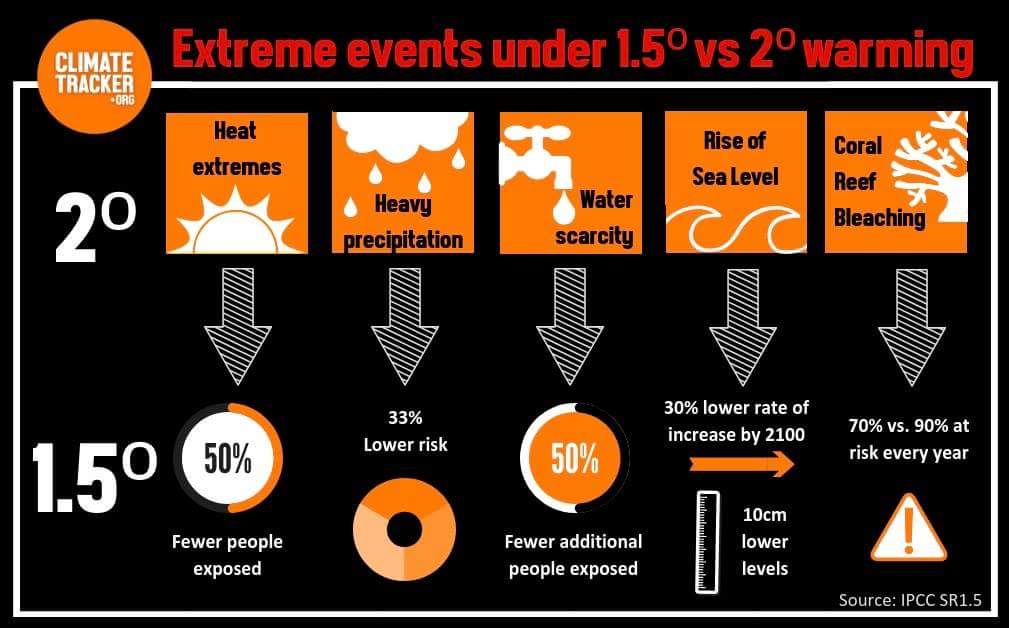
In the wake of what is being described as the worst floods Trinidad and Tobago has experienced in modern history and what was declared a national disaster by Prime Minister Keith Rowley, my mind goes back to the recent report issued by the International Panel on Climate Change (IPCC).
On Monday 8th October 2018, the IPCC, a body set up to provide a clear scientific view for governments on the causes, impacts, and solutions to rising temperatures, released the most important report on climate change in decades, and it went viral.
This report will determine how policymakers shape climate-related policies, how the rules for the Paris Agreement will be enforced, and how well-prepared we need to be for an already drastically changing climate.
What does that have to do with you and I?
With every degree of global warming, the health and lives of millions of people are being put further at risk. That is the conclusion of the IPCC Special Report on 1.5°C.
Spread of Infections
Even now, as my Facebook feed is inundated with heartbreaking videos and images of my fellow citizens suffering major losses due to massive floods, I think of the health effects. Floods occur worldwide and their impact is expected to grow in due to the effects of climate change, with more frequent and intense hurricanes.
Met Office warns of more bad weather, flooding | CNC3 https://t.co/6v1ciwaN7h pic.twitter.com/GwCc8PCCHd
— CNC3TV (@CNC3TV) October 20, 2018
Floodwaters pose immediate dangers to human health and long-term effects resulting from displacement and worsened living conditions. A birds’-eye view of Trinidad right now looks like rooves just floating in sludge. Consider the spread of gastroenteritis, zoonotic infections such as leptospirosis, and noncommunicable diseases.
La Horquetta and Arouca Health Centres open to persons seeking medical attention | CNC3 https://t.co/ntiq0DV0Th pic.twitter.com/EEo5HyLe5t
— CNC3TV (@CNC3TV) October 20, 2018
“It is now the scientific consensus that global warming affects human health, causes the loss of millions of lives and is a poverty multiplier,”
states Arthur Wyns from Climate Tracker, co-author of the 1.5 Health Report, which synthesises the findings on health in the IPCC report.
“The IPCC report makes clear that the lower the warming, the safer for health. As we pass 1.5C, 2C, or even higher, the risks to health multiply,” adds Diarmid Campbell-Lendrum from the World Health Organization, who also co-authored the 1.5 Health Report.
Unbearable temperatures
According to The Trinidad and Tobago Meteorological Service (TTMS), Trinidad and Tobago is getting hotter fast. In fact, temperatures across the country have increased unwaveringly since 1946 at about 1-degree Celsius every 30 years. Between 1981-2010, the annual mean temperature increased by 0.8oC compared even to the 60’s. With an observed warming of 0.27oC per decade at the station in Trinidad and 0.17oC per decade in Tobago, consistent with the IPCC (2007) observed 0.2oC per decade in the Caribbean region.
These catastrophes are crucial elements of the global climate disruption and they are having vile effects on human survival. Many diseases flourish in warmer climates. With only a minor increase in average temperatures, Chikungunya, nicknamed ChikV, was locally transmitted in the Americas for the first time in December 2013. The disease took little time to spread throughout the hemisphere, taking a great toll on the Caribbean.
With warmer temperatures and changes in rainfall patterns, the mosquito-borne-disease is able to thrive and spread at much faster rates. With limited land space and limited finance to allocate to the health system, diseases spread quickly throughout the region; affecting economic stability, placing pressure on labour productivity, and adding to the financial strain of the citizens.
Keep Temperatures Down, Save Lives
The world has already passed one degree of warming as carbon emissions have risen continuously since the 1850s. The IPCC 1.5 report now confirms that the current degree of global warming has already exacerbated human health factors, such as extreme weather events, heat waves, food security, and sustainable development, and will worsen with rising temperatures.
At +1.5°C of warming, twice as many megacities as present are likely to become heat stressed, exposing an additional 350 million more people to deadly heat stress by 2050, the IPCC report states.
In addition, the impacts of 1.5°C would disproportionately affect disadvantaged and vulnerable populations through food insecurity, higher food prices, income losses, lost livelihood opportunities, adverse health impacts, and population displacements.
There is a strong public health case for limiting warming to the greatest extent possible. “Virtually all the strategies to limit climate change would improve human health,” states Andrew Shindell, a Coordinating Lead Author of the IPCC Special Report on 1.5.

Climate change is projected to be a poverty multiplier, and health risks that come with global warming are unevenly distributed, the IPCC report states.
Climate Adaptation and Mitigation Pathway
The reality is, there is an urgent need to increase the level of adaptation ambition. . Even with rapid mitigation, the world is projected to warm an additional 0.5C between 2030 and 2052. Without additional adaptation, this temperature change is expected to have widespread and significant negative consequences for human health, disproportionately affecting the poor and disadvantaged, even under a mitigation pathway to keep warming below 1.5C.
Health systems need to rapidly increase their transition to climate resiliency to manage projected reductions in food quality and security, increases in water stress, increases in the magnitude and frequency of selected extreme weather and climate events, increases in the geographic range of malaria and dengue, and changes in the burdens of other climate-sensitive health outcomes. The IPCC Report underscores the need for increased ambitions for adaptation and mitigation.
Drastic climate action is needed in the face of a reality where fossil fuel dependence and climate change is threatening human health and survival.